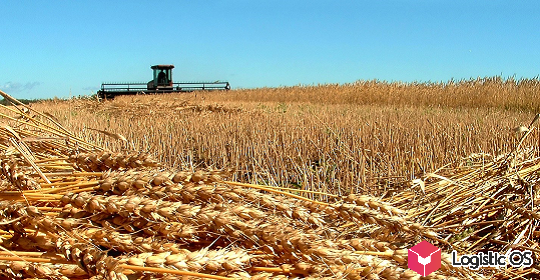Elevator Ventures venture company, part of Raiffeisenbank, together with Speedinvest investment fund invested $ 1.5 million in the Russian young company Agro.Club.
For reference:
Venture investment is an investment in young, developing companies in exchange for a share in them. Moreover, the investment is made mainly in business development, and not in the acquisition of shares of shareholders.
Venture capital brings together those who have capital and those who have technology, thereby allowing young companies to develop, solving their problem of insufficient financial resources.
Thanks to venture capital funds, in particular, the world recognized such companies as Intel, Microsoft, Google, Yandex, Abbyy Russia (Abi), A4Vision.
The category Agribusiness Marketplaces, to which the Agro.Club project belongs, is of great interest in the world in connection with the general digitalization of the economy. In 2019, $ 786 million was invested in such marketplaces, and 4% of them were invested in agricultural technology.
«Agro.Club» is a mobile application and web service, or rather, a kind of ecosystem that brings together producers and buyers of crops, seeds, agricultural chemistry and agricultural equipment, as well as market analytics on one site. In addition, the platform provides an opportunity to directly communicate with all market participants, share experience and innovations.
Currently, Russia is a key player in the agricultural market with a capacity of June 2020 about $ 20 billion.
What problems does the platform solve for farmers?
First of all , it enables more manufacturers and buyers to directly learn about each other, bypassing all sorts of intermediaries and resellers.
Over the 18 months of the project, more than 20% of agricultural producers joined it.
Purchases through the platform are made by such well-known companies as Cargill, Agromarket, or EFKO.
Each month, more than 2 million tons of grain is put up for sale through the Agro.Club application, transactions amounting to hundreds of millions of rubles, and turnover growth is 50% from month to month.
And in the spring of 2020, the company entered the North American market.
Secondly , the company is the guarantor of all transactions from purchase to delivery of goods to the buyer.
This has destroyed such a large procurement problem area as the possible dishonesty of sellers and buyers.
In this ecosystem, it is the platform that is responsible for the quality of the delivered products, provides logistics and, most importantly, pays for the purchased goods to the seller and only then independently regulates the issue of payment for the transaction by the buyer.
Third , the platform is free for manufacturers, 1% of the transaction is paid by the seller for using the platform.
There are, in principle, a small number of agricultural marketplaces, and only one is free: GrainChain is a project of Belaya Dacha, together with the government of the Tambov Region and Apibank.
Manufacturers were forced to include any additional costs, even paid use, possibly with very good marketplaces, in the cost of production, and the appearance of the free Agro.Club project for them removed this burden.
Another problem of existing online services is that the buyer can see the cost of delivery and registration of certificates only after purchase. Accordingly, it was difficult for the buyer to calculate the actual cost of the purchased products.
Agro.Club also solved this problem: the buyer, even before the transaction is concluded, can see the cost of issuing the certificate and calculate the route convenient for him.

Of course, the project «Agro.Club» deserves close attention of the participants of the agricultural market.
Today, despite universal digitalization, the agricultural market remains largely opaque. In Russia, exchange trading has not yet developed, and forward contracts have not received proper development, due to the frequent default by both parties.
Perhaps it is precisely Russia that the stage of exchange trading and forward contracts will not pass, but will immediately step over to the stage of sales through digital platforms.

